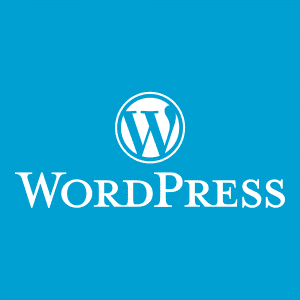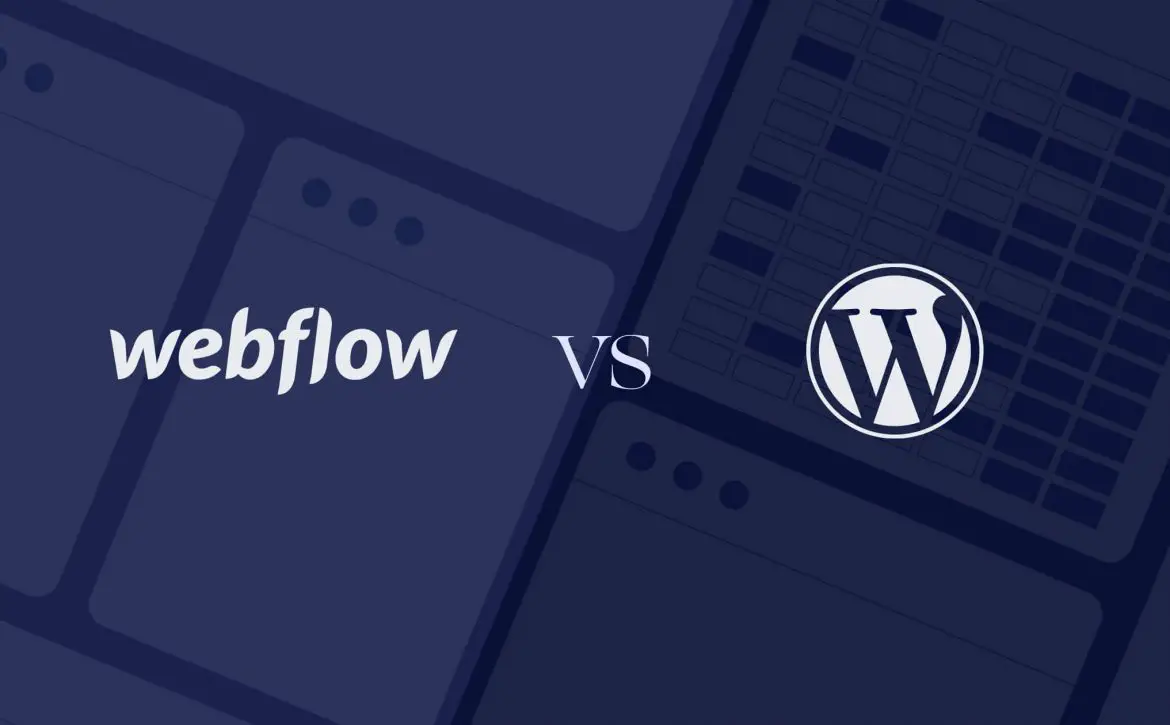WordPress or Webflow: Who Wins?
So, there’s this competition going on around the web, web developers, webmasters, and even SEOs, which begs the question; WordPress or Webflow? Who wins? SEO wise, design wise, code wise, functionality, and cost effectiveness, who wins? Well, in this article, we are going to point some things out – not crown a winner, or declare some position. This is so that you make the choice for yourself; who your winner is. Shall we?
Webflow


The webflow logo
Let us begin by acknowledging that Webflow is a lot newer to the game than WordPress. I mean, we all know that, right? Webflow was launched in August 5th of 2013, by Vlad Magdalin, Sergie Magdalin, and Bryant Chou.
Webflow is a visual content management system (CMS) that appeals to web designers who want to create and customize websites and have hosting, security, and website performance all taken care of. Unlike WordPress whose software you need to install on your own hosting server, Webflow is a SaaS application that can handle everything for you. From hosting to security, all will be handled in one packaged platform by Webflow. This is why its popularity is attributed to its convenience.
Like its competitors, Webflow offers pre-built website templates that can be purchased for some token. But if one does not want to use a template, they can start from scratch. Its built-in drag and drop builder is simple enough to learn and is targeted towards web designers who want little to no code tool. However, anybody can use Webflow to create a website.
The main difference between Webflow and other SaaS website builders, is that Webflow gives you access to all of your site’s underlying code.
For dynamic sites, Webflow also includes its own content management system that you can use to create a blog, e-commerce store, and more.
After creating a website with Webflow, you can either export the code of your finished site and host it on any hosting provider (if it is a static site). Or, pay Webflow to host the site for you, which is a requirement if you want to use Webflow’s CMS for dynamic content.
Visit webflow.com to build a website with them.
WordPress


The WordPress logo
WordPress is a free popular open-source content management system. It is the most popular way to build a website, powering about 42.8% of all the websites on the internet, as at October 2021. And like you read earlier, WordPress was in the game, 10 years before Webflow (launched May 27, 2003). So, you can understand this domination.
About anybody can download the free WordPress software from wordpress.org and install it on their own web hosting to create a website.
WordPress originally began as a blogging system, but has grown into a full-service CMS that can handle any type of site, from business websites to portfolios, ecommerce stores, and more.
WordPress’ features include a plugin architecture and a template system, referred to by WordPress, as Themes.
The plugins can be used to add new features to a site, while the themes control the design of a site. WordPress is reliant on these features. Almost all WordPress websites have plugins, and use the WordPress themes. WordPress can be particularly tricky to get your head around at first, due to these external features.
This brings about a significant difference between WordPress and Webflow. The core WordPress software is a foundation that you can customize by adding plugins, whereas Webflow is an already finished SaaS application where everything is built into the tool.
Most modern WordPress themes come with a default drag-and-drop page builder as part of the package, though they are not built in.
WordPress or Webflow: The Comparisons
Design and code
We can see from the above subheadings, how design of a website is carried out on each platform. Whilst one needs plugins and themes for WordPress, Webflow already has everything in stock.
One has to familiarize himself with WordPress’ features, to be able to efficiently design, while for Webflow he just designs on the platform. Although for both, one has to be familiar with the least codes, and some CMS features.
WordPress actually beats Webflow in terms of the amount of pre-built themes one can download, both free and paid. With thousands of WordPress themes available to choose from, a person is likely to find one that won’t need much customizing – no matter the skill-level or industry.
Overall, no much knowledge of coding are required to build a website on either platforms.
Functionality and SEO
At a high level, both WordPress and Webflow can do everything that most site owners need. However, Webflow does not have much room for integration of third-party software, as WordPress does.
Some integrations are easy enough to execute, but one may need to do some coding for most, which, if you’re unfamiliar with code, can be quite tricky.
Webflow also lacks in functionality in the absence of blog posts. There are limited options to boost your content’s SEO, which is not good for a site expecting traffic from content. There also is no post comment function, which takes away chance for engagement. This is quite the opposite for WordPress, as there is the Gutenberg editor for content on WordPress, and presence of a comment section. The Yoast SEO plugin also helps a content’s SEO.
Cost
For someone who is looking to build his own website, cost is always considered.
In this case, WordPress has an upper hand, as it is free to use. The only thing to be paid for, is your hosting and domain name, which, depending on your provider, can be as little as £2.43 a month.
Anything more than just a basic website on Webflow costs about £13 or beyond, per month.This covers the website hosting and gives you the ability to add your own custom domain. There are a few pricing plans one can choose from. The more expensive plan one chooses, the more features they get.
However, you may also need to purchase a theme, if you are not a web designer, despite the platform you choose. This is why it is recommended for non web designers to hire web development agencies when they want a decent, truly bespoke website.
Apart from the purchase of themes or templates, you now know which has the cheaper offer.
Conclusion


WordPress or Webflow, who do you choose?
WordPress or Webflow, who do you choose? Yes, you can create great websites on either platform. What really matters is what you prefer in a platform.
Webflow is easier to use, compared to WordPress. The platform is neatly packaged, so one gets to design there, and be sure of hosting and security too.
WordPress has its own benefits; we cannot deny that they mostly out beat Webflow. The third-party integrations, features, cost effectiveness, and functionality!
There is a reason why WordPress remains the most popular website builder to date. I think that owes to functionality. For individuals and businesses looking to make a website, WordPress is probably the better choice, given its flexibility and integration with more tools. It is also quite cheaper. It does not require much learning if you’re not already familiar with the basics of HTML and CSS.
Web designers may prefer Webflow, because many of its features are targeted towards helping them build websites faster. Nevertheless, whichever platform it is that you choose, we will be glad to assist. It is, after all, expertise that simplifies complexity.
Finally, you should know that you don’t always have to choose between WordPress or Webflow. The official Webflow Pages plugin for WordPress makes it possible for you to build pages for your WordPress site using Webflow.
That is all there is to it! Know more about this growing competition? Tell us in the comments! Questions? I’d be happy to answer! And if you are not satisfied with this article, you can go on to make more research.
Thanks for reading.


